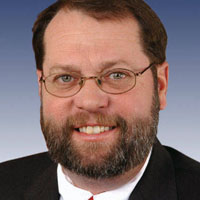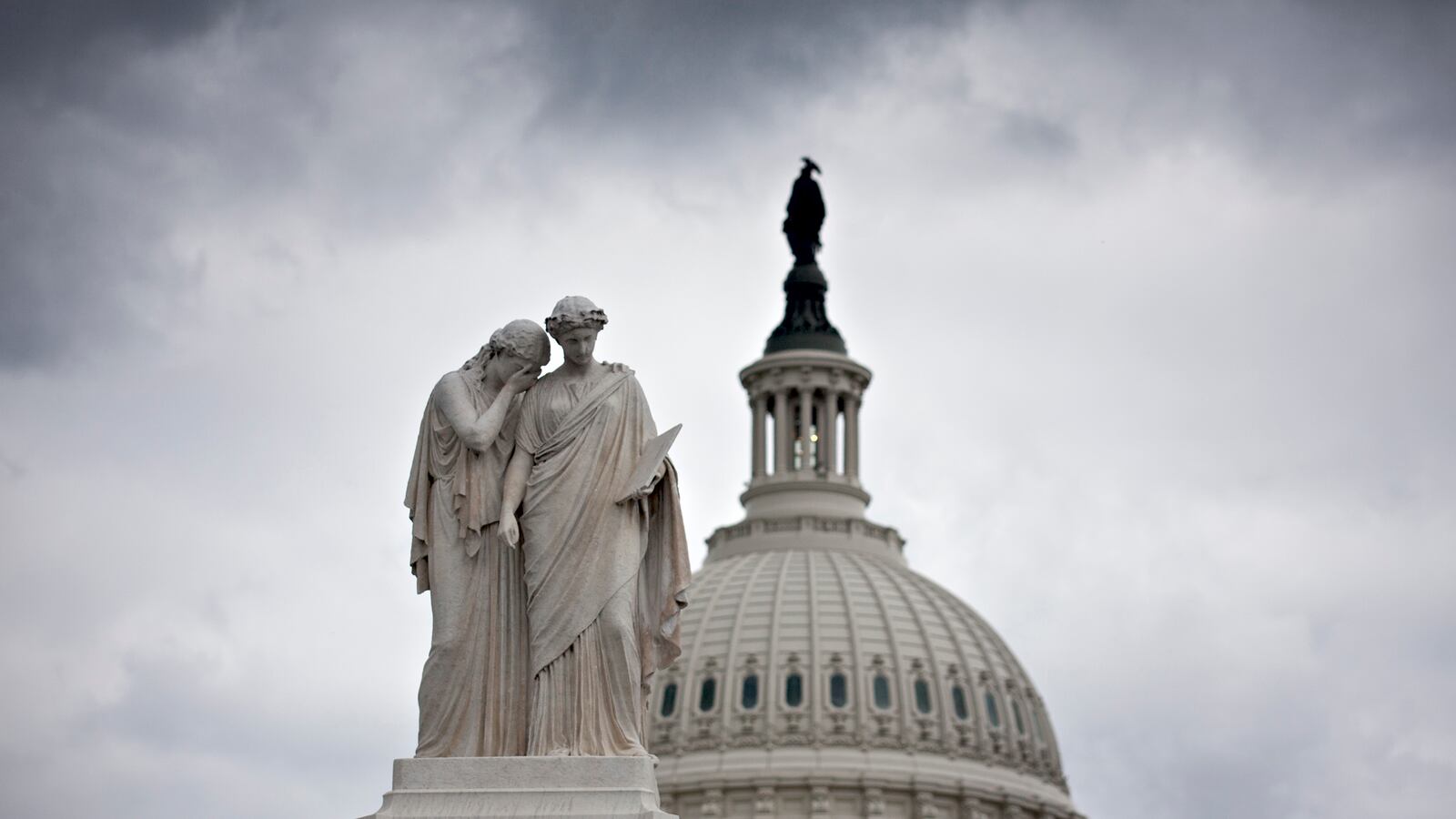Traditionally, people come together in times of crisis—even politicians.
Indeed, in the hyperpartisan dysfunction that has become the modus operandi of Washington today, basically the only time the two sides can come together to get anything done is in times of crisis. It is why, until recently, most observers believed that a government shutdown, while fun for the talking heads on cable news to discuss, would be averted.

Unfortunately, the once unthinkable now seems unavoidable, and there is plenty of blame to go around. In this crisis, there were no hands on deck—no one willing to budge one iota from their respective ideological corners.
Both Democrats and Republicans in Congress, along with President Obama, have acted as though the elections of November of last year simply didn't happen. How else can you explain their approaches to this crisis?
President Obama and the Democrats in Congress have taken the position that they will not negotiate with Republicans, even though voters chose last November to keep Republicans in control in the House.
Congressional Republicans have taken the position that they will not move forward without repealing Obamacare, despite the fact that voters chose last November to keep President Obama in the White House and to keep Democrats in control in the Senate.
This is a very dangerous game of political chicken that both sides are playing.
For Republicans, a government shutdown could be a public-relations disaster. Polls regularly show that the overwhelming majority of Americans do not want a government shutdown and those polls also show that—fair or not—Republicans will bear the brunt of the blame from the public.
Those on my side of the aisle who say that a government shutdown will not damage the Republican Party are either actively ignoring history or simply ignorant. I was there in 1995 when a battle between House Republicans and a charismatic Democratic president ended in a government shutdown. I know firsthand that we paid a political price for that shutdown.
For Nancy Pelosi and the Democratic Congressional Campaign Committee, a government shutdown would be a potential political bonanza. Midterm elections in the second term of a presidency are traditionally very tough for the party of the White House. The quixotic efforts of a handful of Republicans in both chambers to undo Obamacare as part of the debate over funding the government could give Democrats not only a lifeline for the midterms, but the political ammunition to undo the Republican majority in the House.
There are also real policy implications—implications that Democrats in Congress and the president should be concerned about.
The Democrats are the party of government; their electoral coalition is compromised of individuals and groups who rely on the government to achieve their policy goals, from environmentalists to Wall Street reformers to education advocates to the poor. What kind of message would it send to these constituencies that their advocates in Congress and the White House are willing to inflict wholly unnecessary policy pain on these groups all in the name of partisan politics?
Additionally, President Obama and Democrats have to recognize that his legacy is on the line here. No one remembers who was the speaker of the House under Herbert Hoover. If a government shutdown is the first domino in a series of dominos that threaten the economic well-being of the country, the legacy of that disaster will be the legacy of President Obama.
This is one of those moments in Washington that requires real political courage. We won't get out of this mess until we have people on both sides of the aisle who understand that the consequences of a government shutdown are akin to Cold War–era mutually assured destruction. We will not get out of this mess until we see leaders on both sides of the aisle willing to walk out of their ideological corners and do what is right for our country—not what is politically expedient.
The good news is that we are seeing some who are willing to do just that. There are Republicans in the House, like my former colleague Charlie Dent (R-PA), who say it is time to govern, and there are Democrats in the Senate, like Joe Manchin (D-WV), who are willing to break from leadership to get a deal done.
For a deal to be done, we need those trickles of rational thought on both sides of the aisle to become downpours.






